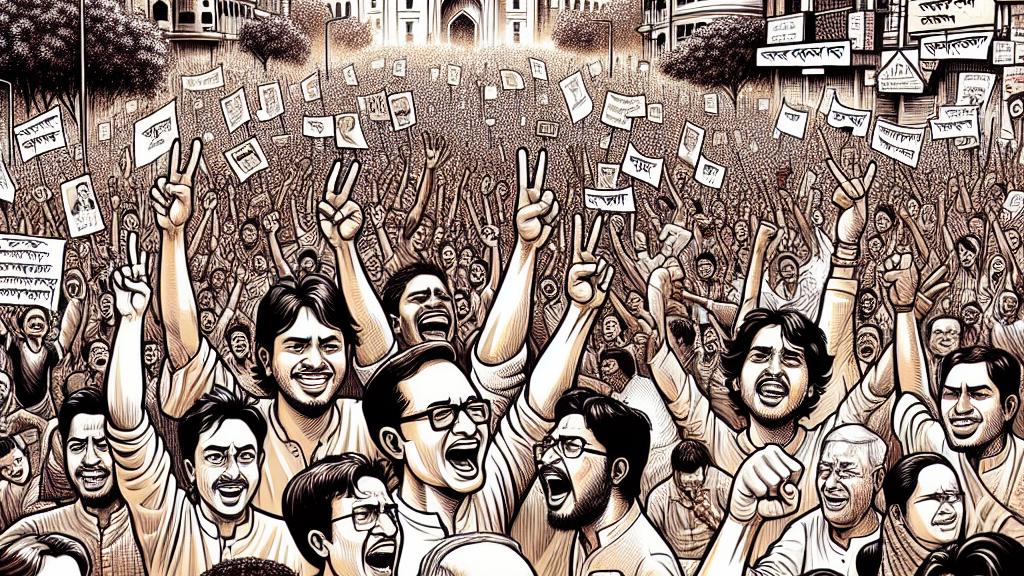Chaos in the Fast Fashion Capital: Millions Celebrate Prime Minister's Resignation!
Overview
- Mass protests erupt in Bangladesh, celebrating the resignation of Prime Minister Hasina.
- The garment industry faces significant disruption as factories halt operations.
- Youth activism emerges as a powerful force for political and social change.

A Turning Point for Bangladesh
On August 5, 2024, Bangladesh witnessed a historic moment as Prime Minister Sheikh Hasina stepped down following unprecedented protests led by youth across the nation. The seeds of dissent had been sown for years due to widespread dissatisfaction with government policies, economic struggles, and threats to civil liberties. As millions filled the streets of Dhaka in celebration, they not only marked the end of Hasina's nearly 15-year rule but also ignited hopes for a more democratic and transparent political landscape. This event signifies a crucial turning point for a nation long grappling with political turmoil, suggesting a long-awaited shift towards accountability in governance.
Economic Chaos in the Garment Sector
Bangladesh, revered as the second-largest garment exporter globally, now finds its vital industry in jeopardy due to ongoing civil unrest. Major factories, including Ulumi Group, pivotal to the fast fashion supply chain, faced forced shutdowns, disrupting export schedules and jeopardizing thousands of jobs. The instability exacerbated by intermittent internet access, which authorities imposed to manage protests, reveals the fragility of the nation's economic backbone. With the garment industry employing millions, the recent unrest not only threatens livelihoods but also calls attention to the urgent need for labor reforms and improved safety standards in light of past tragedies like the Rana Plaza collapse, where over a thousand workers lost their lives due to negligence and poor working conditions.
Youth: The Architects of Change
The protests led by young people in Bangladesh reveal a significant shift in the nation’s political climate, where youth are now seen as catalysts for change. Their vigor and determination often contrast sharply with the political apathy seen in other nations, such as Japan, where younger generations frequently disengage from societal issues. The active participation of youth in these movements highlights their demand for reform and desire for a safer, more equitable society. As the country braces for the aftermath of these protests, the ongoing youth activism may pave the way for a more participative political environment, emphasizing the need for policies that prioritize educational, economic, and social rights for the younger demographic.

Loading...